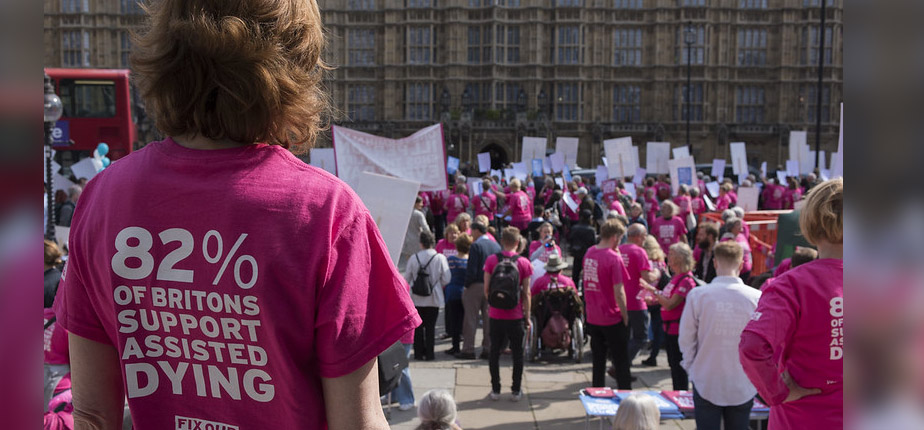
MPs will vote this month on a proposed assisted dying bill, which could lead to changes in the law to allow terminally ill people in England and Wales the right to choose to end their life (a separate bill will be discussed in Scotland). The Labour MP Kim Leadbeater says, ‘Now is the time’ for MPs to vote on assisted dying. The vote is scheduled for November 29.
The Bill proposes assisted dying, which generally refers to a person who is terminally ill receiving a substance prepared by a doctor, which they then administer themselves to end their life. This is different from assisted suicide, which is when another person helps the patient to end their life, who may or may not be terminally ill, by injecting a lethal dose of medication or taking them to another country which allows assisted dying.
Although some countries allow euthanasia and assisted suicide, UK laws prevent people from seeking medical help to die. Other countries such as Switzerland have allowed assisted suicide for many years. The Dignitas facility (in Switzerland) began operating in 1998 and accepts foreign nationals – people from the UK have travelled to Dignitas to end their lives. Other countries including Austria, Canada, Spain, Colombia and some parts of the US and Australia also have different forms of assisted dying for patients who are terminally ill, and some countries allow end-of-life options for people who are not terminally ill but suffer from other conditions.
Leadbeater has introduced the Terminally Ill Adults (End of Life) Bill, which could change the legal position in England and Wales. The first debate on the proposed changes to the law in the UK will be on November 29. The Bill sets out the criteria under which patients will be allowed to ask for assisted dying. The Bill says anyone who wants to end their life must:
Be over 18, live in England and Wales, and have been registered with a GP for at least 12 months.
Have the mental capacity to make the choice and be deemed to have expressed a clear, settled and informed wish, free from coercion or pressure.
Be expected to die within six months.
Make two separate declarations about their wish to die, both of which must be witnessed and signed.
Satisfy two independent doctors that they are eligible, with at least seven days between each doctor’s assessment.
A High Court judge must hear from at least one of the doctors and can question the dying person, or anyone else considered relevant. Having considered the case, the judge will make their ruling. After this, the patient must wait another 14 days before acting. If the patient still wishes to proceed, a doctor would prepare the substance being used to end the patient’s life, and the patient would administer the substance themselves.
The proposals would have to be approved by MPs and peers before becoming law.
Campaigners say there are robust measures in place to ensure the options are only available to people who have terminal illnesses and are expected to die within months. It will also be illegal to pressurise or coerce someone into requesting this, carrying a significant prison sentence of up to 14 years.
This is a controversial area, with strong views on both sides.
Supporters of the Bill argue people who are terminally ill should be given the choice to plan their death and avoid prolonged suffering. Religious, ethical, legal and moral arguments are made on both sides. Many who oppose changes to the law are concerned about the pressure this could place on individuals who are facing terminal illness, in addition to the pressures this will place on doctors and nurses within the medical profession.
There is also the potential ‘slippery slope’; once this becomes law, in time, the criteria to qualify will be expanded and lead to a broader range of people who will be eligible. For this reason, some have advised that improvements in palliative care should be the priority, improving end-of-life care so patients can feel confident in the quality of their care and pain management.
Naturally, many will see this as a significant shift in the law for the UK, and once established, there is the danger that the ‘criteria’ could be widened over time. The consequences and pressure this could place on people, and their families, with terminal illnesses, disabilities and the elderly are of grave concern.
How can we predict what this will lead to in the future? What coercion or pressure might this place on vulnerable individuals who rely on other people or the state for their care? Can doctors accurately predict the amount of time left a patient has and, given that information, will all patients be able to make a rational choice?
(Credit: Lorentz Gullachsen/Dignity in Dying)
Rachel Kayani
READ MORE
Muslim healthcare professionals and over 3,400 medics urge the PM to reject Assisted Dying Bill
UK Parliament divided as assisted dying Bill gains momentum amid broader debate